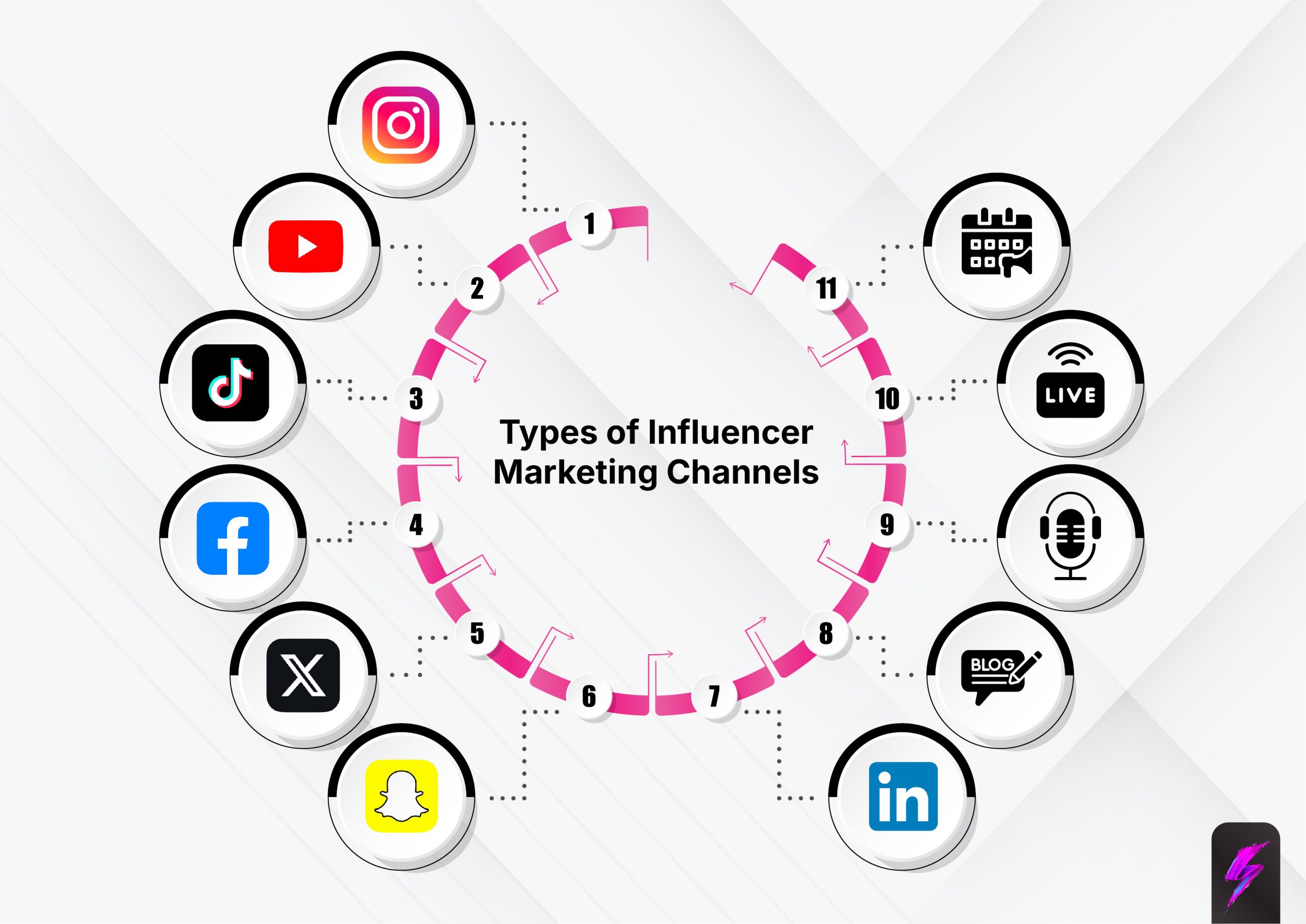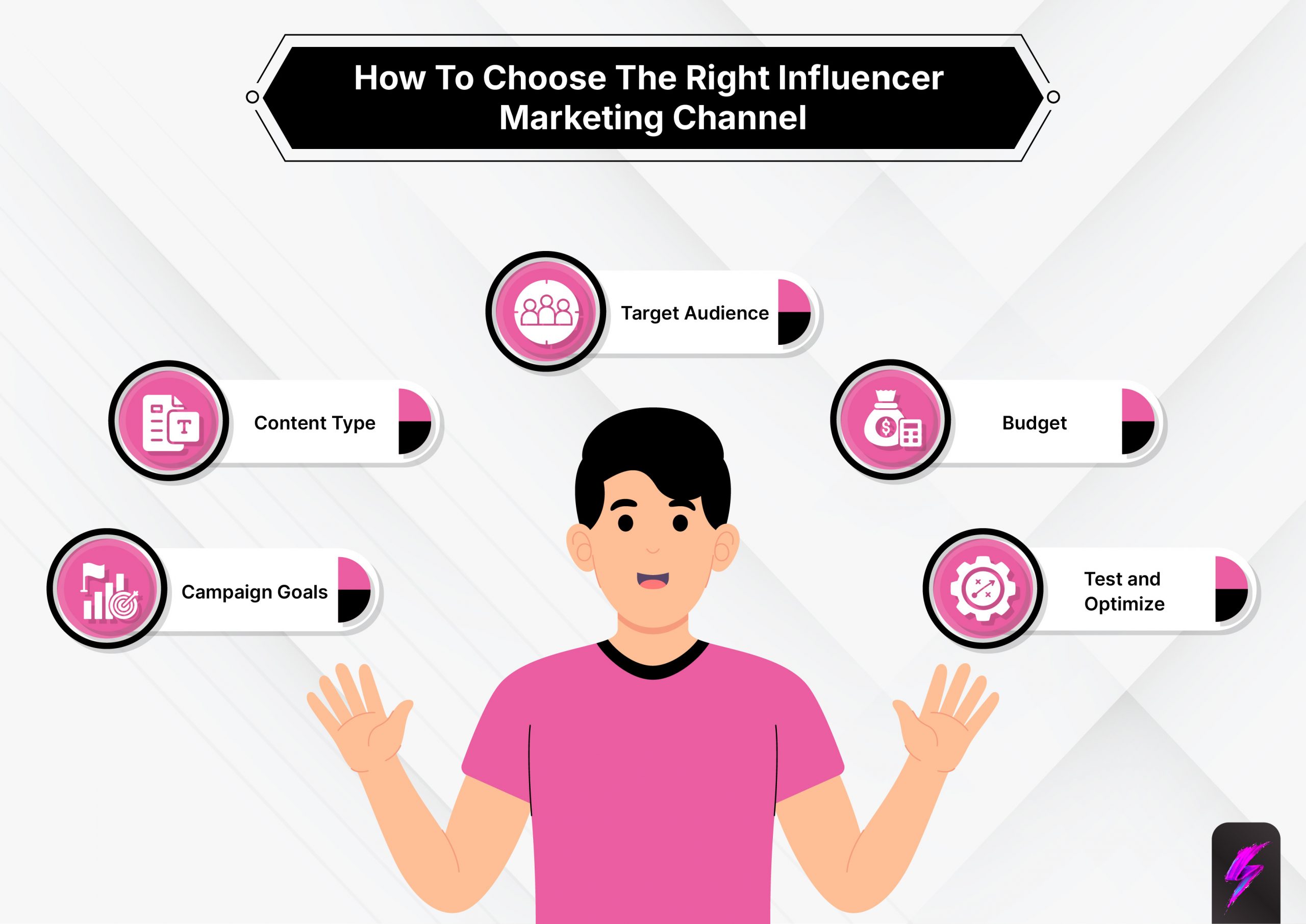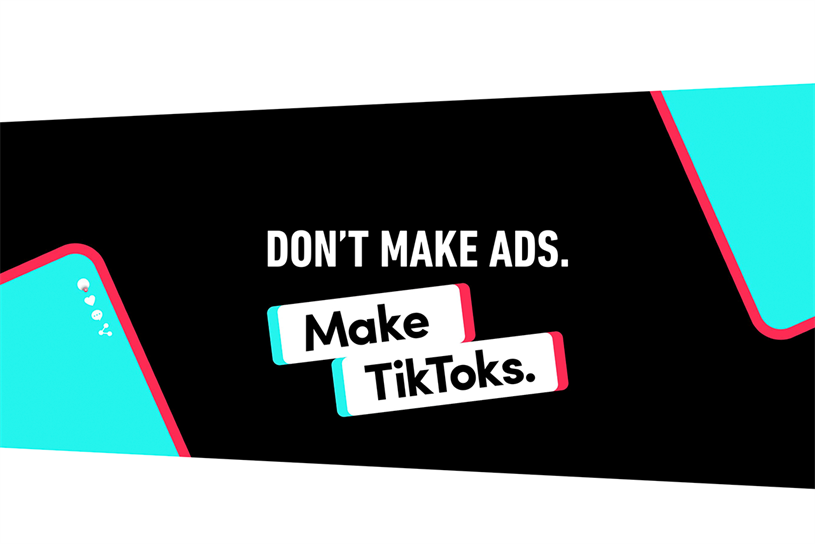Top Influencer Marketing Channels to Grow Your Brand







Influencer marketing has become an important part of digital marketing, with global spending on influencer campaigns increasing continuously. Some of the top influencer marketing channels include Instagram, TikTok, YouTube, Facebook, X (Twitter), Snapchat, LinkedIn, blogging, podcasts, live streaming, and event-based marketing. These platforms offer diverse content formats such as videos, posts, live interactions, and written content for influencers to connect with audiences in unique ways.
Influencer marketing helps businesses by using the personal brand and established credibility of influencers to boost brand awareness, generate leads, and increase sales. Creator collaborations on these platforms enable businesses to reach their target audience authentically, drive engagement, and build trust. Influencers are able to share valuable content that resonates with their followers, particularly within niche communities, where engagement tends to be higher.
When selecting the right influencer marketing channel, brands focus on factors such as their target audience, campaign goals, and the type of content they wish to create. For example, brands targeting younger demographics may lean toward Instagram or TikTok, while those with a B2B focus may prefer LinkedIn. Budget also plays an important role when choosing the right influencer marketing channel, brands with lower budgets might opt for microinfluencers on Instagram or Twitter, while those with more resources could invest in high-production value platforms like YouTube.
What Are Influencer Marketing Channels?
Influencer marketing channels are mediums through which influencers create and share content to promote products and services to their audience. Every influencer marketing channel has its own algorithm and supports different types of content like videos, posts, and live streams. These channels use established credibility, reach, and engagement of an influencer with their followers to drive brand awareness, generate leads, and increase sales. Influencer marketing channels include social media platforms, blogs, podcasts, email newsletters, and live streaming.
What are the types of Influencer Marketing Channels?

Types of influencer marketing channels include Instagram, YouTube, TikTok, Facebook, X (Twitter), Snapchat, LinkedIn, blogging and content creation, podcasts, live streaming, and event-based marketing.
The different types of influencer marketing channels are given below.
- Instagram: Instagram is a visual-centric platform that allows influencers to share photos, videos, stories, and reels to engage their audiences and promote brands.
- YouTube: YouTube is a video-sharing platform where influencers create long-form videos, tutorials, reviews, and vlogs to build brand awareness and drive engagement.
- TikTok: TikTok is a short-form video platform known for viral challenges, trends, and creative content, and allows influencers to engage with a younger audience.
- Facebook: Facebook is an influencer marketing channel where influencers share posts, videos, and live streams to reach a broad, diverse audience, particularly for both B2C and B2B campaigns.
- X (Twitter): X (Twitter) is a real-time, microblogging platform where influencers share brief, impactful messages, participate in discussions, and use hashtags to amplify brand visibility.
- Snapchat: Snapchat is an app where influencers share temporary, creative content such as Snaps and Stories to engage with a younger audience in a personalized way.
- LinkedIn: LinkedIn is a professional networking platform where influencers share thought leadership, industry insights, and business-related content to build credibility and authority.
- Blogging and Content Creation: Blogs are written content, such as articles, guides, and reviews, that provide in-depth information and help boost organic traffic and brand visibility.
- Podcasts: Podcasts are audio-based platforms where influencers host discussions, interviews, and storytelling, and allow them to connect with a targeted and engaged audience.
- Live Streaming: Live streams are real-time video broadcasts where influencers interact directly with their audience in an authentic way to promote products or services.
- Event-Based Marketing: Marketing efforts centered around live or virtual events, where influencers promote brand activations, sponsorships, and product launches to generate buzz and engagement.
Instagram has around 2 to 3 billion active users therefore, it is one of the most powerful channels for influencer marketing. It allows influencers to post reels, stories, and posts for lifestyle, fashion, and beauty campaigns. The channel provides a combination of captivating visuals, short-form content like reels, stories, and posts with engaging captions.
Instagram provides real-time interaction and helps to drive sales with strong call-to-action features, like direct links in stories and bios, polls, and targeted ads. Its advanced targeting options for ads make sure that content reaches the right audience so that more people buy the product or service. Well-crafted influencer marketing campaigns have the potential to gain organic visibility because of Instagram’s algorithm, which prioritizes content that generates high engagement.
TikTok
TikTok focuses on short-form and viral video content that focuses on trends, challenges, and duets. Its primary appeal lies in its ability to engage a younger, highly active audience with content that encourages creativity and spontaneity.
TikTok’s algorithm is designed to prioritize content discovery and allows both influencers and brands to reach a broad, engaged audience and increase brand visibility. This channel provides features like TikTok’s in-app shopping, sponsored ads, and strong community engagement tools, like comments and likes, that help businesses convert engagement into sales.
YouTube
YouTube is a long-form video platform where influencers create tutorials, reviews, vlogs, and unboxings. Influencers on YouTube can build deep, long-lasting relationships with their audiences by creating in-depth and highly engaging videos. YouTube offers multiple monetization opportunities, including ads, sponsorships, super chats, and channel memberships, to generate significant revenue while promoting products.
YouTube’s searchability provides an edge to brands, as videos continue to generate views long after they are posted and give brands sustained exposure. This channel is a valuable asset for both short-term influencer marketing campaigns and long-term brand-building strategies because of its strong SEO features.
Facebook has about 3 billion users between the ages of 25 to 34 and is a useful influencer marketing channel for brands in lifestyle and family-oriented niches. Influencers on Facebook share content through posts, live videos, and stories to achieve influencer marketing campaign goals, like brand awareness and lead generation.
Businesses can reach highly specific audiences, track performance, optimize influencer marketing campaigns, and measure return on investment (ROI) effectively through its analytical tools and advanced targeting capabilities. Facebook, however, offers less organic niche making it costly, and is not ideal for brands aiming to connect with a younger demographic.
X (Twitter)
Twitter is a fast-paced, real-time platform that provides businesses with a unique opportunity to engage with audiences through concise, impactful content with the help of influencers. Influencers on X use hashtags to amplify content visibility and allow campaigns to reach both broad and niche audiences.
Twitter drives discussions, shares insights, and contributes to thought leadership to boost brand awareness, share news, and participate in relevant conversations. X’s focus on real-time interaction makes it effective for timely promotions, announcements, and engaging directly with followers. Twitter boosts brand awareness and drives sales through hashtag challenges, sponsored tweets, giveaways, and Twitter chats.
Snapchat
Snapchat is a highly creative platform that serves as an effective channel for influencer marketing, particularly for brands targeting younger audiences, such as Gen Z and Millennials. Influencers share authentic, behind-the-scenes content, product demonstrations, and exclusive promotions in a fun and personalized way.
Snapchat’s features like Stories, Snaps, filters, profile takeovers, and AR lenses extend the reach and engagement of the influencer content. The channel promotes immediate engagement from users because the content disappears after a short time. Snapchat is a better option for time-sensitive promotions, exclusive offers, and product launches, as it drives users to act quickly.
LinkedIn is a valuable influencer marketing channel for B2B brands and industries targeting professionals, decision-makers, and business leaders. This channel is used by about 97% of B2B marketers, and 80% of the B2B leads are generated through LinkedIn.
LinkedIn offers a unique space for influencers to share thought leadership, industry insights, and professional expertise to position brands as authoritative figures in their field. Influencers on LinkedIn create long-form content, such as articles, case studies, and commentary on industry trends, to drive meaningful conversations and establish brand credibility.
Blogging and Content Creation
Blogs are written content such as product reviews, how-to guides, and listicles, are powerful influencer marketing channels that help to engage the audience and promote the brand. SEO-optimized blog content increases search engine rankings and drives organic traffic to both the influencer site and the product pages of the brand.
Collaborations with influencers open doors to opportunities like guest posts, sponsored content, and affiliate marketing. Blog collaborations are valuable in a comprehensive influencer marketing strategy to expand a brand’s reach, increase credibility, and generate leads.
Podcasts
Podcasts provide influencer marketing through sponsored episodes, ad reads, and guest appearances. Sponsored episodes often drive high listener engagement, as the strong trust between the host and their audience increases the authenticity of the promotion.
Influencers can read sponsored ads during podcast episodes to deliver the brand messages in a natural and conversational style for a more personal and less intrusive form of advertising. Brands collaborate with podcast hosts for guest appearances, where an influencer or brand representative joins the show as a guest to build credibility and allow for a more organic promotion.
Live Streaming
Influencers interact directly with their followers and create an authentic connection based on trust by hosting live sessions. Platforms like Instagram Live, TikTok Live, YouTube Live, Facebook Live, and Twitch provide real-time interactions and immediate feedback from the audience to an influencer marketing campaign.
Live video streaming allows influencers to host Q&A sessions, product launches, and exclusive events. A high level of immediacy and connection helps to build stronger relationships between influencers and their audiences, drive higher levels of engagement, and brand loyalty.
Event-Based Marketing
Influencer marketing can be smoothly integrated into both online and offline events to amplify reach, increase attendance, and generate buzz around a brand. Brands use the large and engaged followings of influencers to create excitement and draw attention to events like product launches, brand activations, trade shows, pop-ups, and webinars.
Brands invite influencers to physical events so that they engage the audience by sharing real-time updates on social media, conducting interviews, and showcasing behind-the-scenes moments. The presence of influencers at events not only attracts attendees but also helps boost online visibility as they share their experiences with their followers in real time.
How To Choose The Right Influencer Marketing Channel?

To choose the right influencer marketing channel, decide the target audience, content type, campaign goals, budget, and test and optimize.
Choose the right influencer marketing channel by following the tips given below.
- Target Audience: Decide the target audience of the brand because each channel has its own audience characteristics. Instagram and TikTok attract a younger audience who consume short-form visual content, and YouTube is ideal for people who prefer in-depth content and tutorial-driven campaigns.
- Content Type: Select the type of content you want to create and share, as it will influence your decision to choose the right influencer marketing channel. Choose Instagram and YouTube if you want to focus on video-heavy content, and LinkedIn to promote professional services.
- Campaign Goals: Define the objectives of the campaign and decide whether the goal of the campaign is to boost engagement, drive traffic, or increase sales.
- Budget: Finalize the budget for the influencer marketing campaign and choose the channel that aligns with it. Select microinfluencers on Instagram if your budget is low, and go for YouTube if you have a higher budget.
- Test and Optimize: Run small-scale tests on channels to see which ones provide the best results for your influencer marketing campaign goals. Monitor performance closely and optimize your strategy based on real-time data to achieve maximum effectiveness.
What Is The Most Common Channel Used By Influencers?
The most common channel used by influencers is Instagram because it offers a wide range of content formats, such as Stories, Reels, Feed posts, and IGTV. Instagram’s visual appeal makes it perfect for showcasing products and services, with features like shoppable posts driving direct sales on the platform.
Which Influencer Marketing Channels Offer The Best ROI?
The influencer marketing channels that offer the best ROI (return on investment) are TikTok and Instagram due to their high engagement rates and the ability to reach large, active audiences. Instagram’s shoppable posts and TikTok’s viral content are especially effective for driving immediate sales and brand awareness.
How Socially Powerful Helps in Managing Influencer Marketing?
Socially Powerful helps in managing influencer marketing by connecting brands with the relevant influencers and uses its proprietary Aria AI-powered platform for influencer discovery and performance analysis of influencer marketing campaigns. This platform provides data-driven insights and predictive analytics to design customized influencer marketing campaigns that boost brand awareness and deliver measurable ROI.
Which Social Media Channel Is Best For Marketing?
The social media channel best for marketing depends on the goals of your influencer marketing campaign and the target audience of the brand. TikTok, Snapchat, and Instagram are ideal channels if you want to target a younger audience. LinkedIn is a better option when you want to target B2B marketers, and Facebook, to cater to middle-aged and family-specific niches.
Can Choosing The Right Marketing Channel Impact Overall Brand Credibility?
Yes, choosing the right marketing channel can impact overall brand credibility because selecting a marketing channel that aligns with the target audience and brand values helps to make sure that the brand messaging feels authentic and resonates with the audience.
We'll show you how to start powerful conversation, drive social engagement, build your brand, hit sales targets or meet other goals you have, wherever you are in the world.
Work with us






















